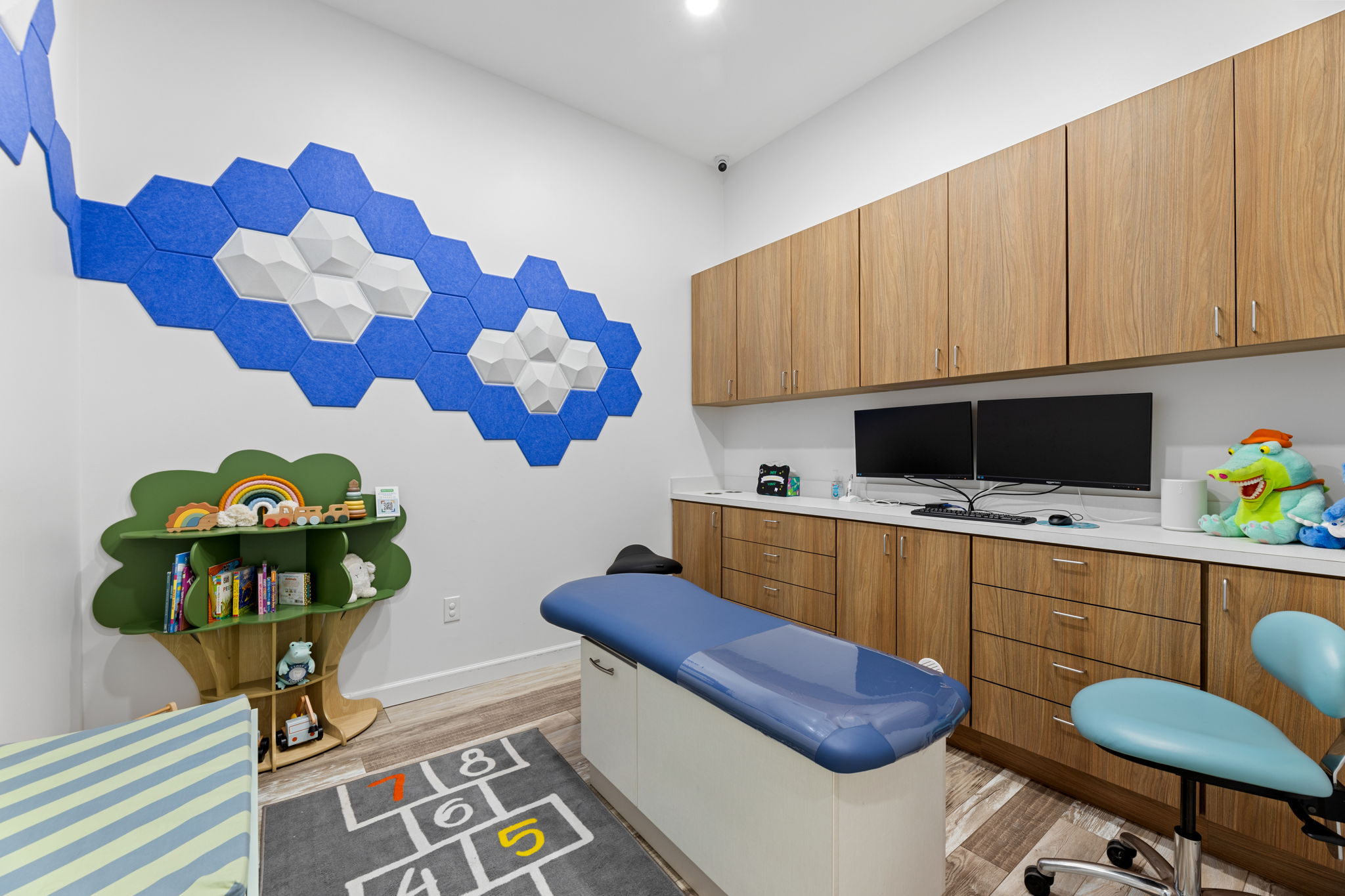
Improves Feeding & Nutrition
By allowing your baby to latch more effectively, frenectomy treatment can support better weight gain, reduce reflux symptoms, and ease frustration during nursing or bottle-feeding.


Has your child recently been diagnosed with a lip or tongue tie? There is no need to worry. More children are born with the condition than you might think. In fact, as much as 11% of newborns have the defect. Although it can occur in anyone, it appears more often in boys, and it also tends to run in families. It is best to have it corrected as early as possible to prevent lasting complications. At Sprout Dentistry for Kids, we treat lip and tongue tie in McKinney, Allen, and Frisco using the compassionate care your child deserves.

There is a small bit of tissue underneath your tongue and lip called the frenulum. When the tissue is too short or thick, it can restrict the movement of the tongue or lip. This can make it difficult for babies to eat, which can harm their growth and nutrition. If the issue is not corrected, it can continue to affect them as they age, impacting their quality of life and development, such as speech delays and dental problems.

By allowing your baby to latch more effectively, frenectomy treatment can support better weight gain, reduce reflux symptoms, and ease frustration during nursing or bottle-feeding.

Untreated ties can interfere with speech, swallowing, and facial growth. Releasing the restriction helps promote better tongue mobility and supports long-term function.

Laser frenectomies are virtually painless and completed in under a minute. With minimal bleeding and no sutures, most children recover quickly with little to no discomfort.

By allowing your baby to latch more effectively, frenectomy treatment can support better weight gain, reduce reflux symptoms, and ease frustration during nursing or bottle-feeding.

Untreated ties can interfere with speech, swallowing, and facial growth. Releasing the restriction helps promote better tongue mobility and supports long-term function.

Laser frenectomies are virtually painless and completed in under a minute. With minimal bleeding and no sutures, most children recover quickly with little to no discomfort.
If your child has a lip or tongue tie, our experienced team is here to help. We understand how overwhelming a diagnosis can be — especially in the newborn phase. That’s why we take time to educate, guide, and support you at every step. Our team customizes care to your child’s age and needs, ensuring a stress-free experience and a healthy outcome.
This is the most visible form, where the tie is attached near the tip of the tongue. It often causes obvious restriction in movement and is easier to identify and treat early.
Located further back under the tongue, these ties may be less visible but can still cause significant feeding or speech issues. Posterior ties are often missed during newborn exams but are thoroughly evaluated at Sprout.
A tight upper lip frenulum can prevent babies from forming a proper seal while feeding, leading to gas, reflux, and nipple pain. Lip ties are often treated alongside tongue ties to ensure full function and comfort.
Sample text is being used as a placeholder. Sample text helps you understand how real text may look. Sample text is being used as a placeholder for real text that is normally present. Sample text helps you understand how real text may look. Sample text is being used as a placeholder for real text that is normally present. Sample text is being used as a placeholder for real text that is normally present.
Our doctors will begin by gently examining your child’s lip and tongue movement. We’ll ask questions about feeding challenges, symptoms, and family history. If a restriction is present, we’ll walk you through the diagnosis and our recommended approach to care.
A frenectomy is used to correct lip or tongue tie. It is recommended your child has the simple procedure before the age of 12 months to prevent the need for anesthesia or sedation; however, it can be performed when they are older as well. The entire treatment generally takes less than one minute to complete. A topical anesthetic is used as a soft tissue laser precisely cuts the tissue to free the movement of the lip or tongue. The laser cauterizes while it cuts to prevent bleeding. It also sterilizes the tissue, reducing the risk of infection.
You will see a white diamond-shaped patch appear when the tissue was cut about 24 to 48 hours after the procedure. It is important to allow your child to move their tongue or lip to prevent the tissue from reattaching. Within 1 or 2 weeks, the tissue will be fully healed.
Give us a call to chat with one of our friendly team members!
Many children are diagnosed with lip or tongue tie shortly after birth. There are several signs your child may have the abnormality, such as:
Besides your child, you may experience signs of lip/tongue tie as well, including:
A tongue-tie develops while a baby is still in utero. In many cases, the banded tissue, also known as the frenum, poses no issues once a child is born; however, in other situations, it remains tight and restricted. When this happens, it prevents a baby from being able to move their tongue very far, limiting their ability to latch while nursing or taking a bottle.
There has been an ebb and flow when it comes to diagnosing tongue-ties over the years. They are far more common than you might realize; however, many remain undiagnosed. It is believed that an American study estimated that out of 1,000 cases, between 4 and 22 individuals had a tongue-tie. Another randomized study in 2002 found that of the 1,866 births, around 10% of babies had a tongue-tie.
Treating a tongue-tie with a frenectomy at Sprout Dentistry for Kids is unlikely to cause any pain. The reason is that it is performed with a soft tissue laser, making the process virtually painless. The concentrated beam of light is so quick and precise that patients hardly feel anything when releasing the tie. Because it cauterizes the area at the same time, there is minimal bleeding or swelling, so your child will recover much faster at home.
Generally, you can begin breastfeeding your baby immediately after our doctors at Sprout Dentistry for Kids are finished with the frenectomy procedure. The nutrients your little one will receive while nursing are beneficial for their healing, and the comfort provided during this time will help them calm down more easily. It is possible that their ability to latch will immediately improve; however, it can take time for other babies to adjust. If you notice that your baby is still struggling to nurse, do not try to rush the process. Instead, be patient, as they might need more time. Do not worry, though, as they will likely begin nursing just fine after a few feedings.
Give us a call to chat with one of our friendly team members!